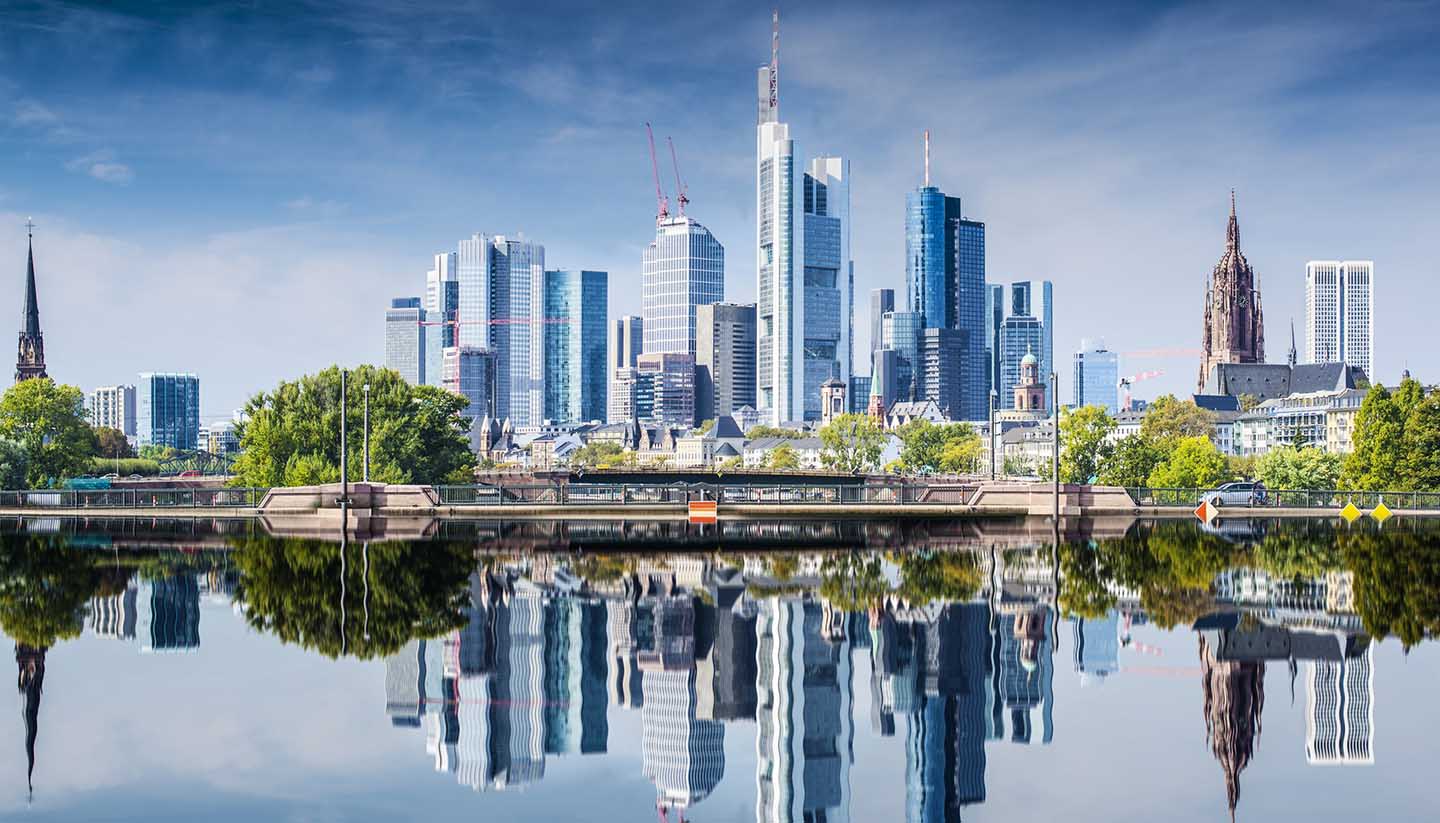Frankfurt History
Having survived wars, occupation, plagues and the destructive lick of fires, the one thing that’s remained constant for Frankfurt am Main is its resilience as an international trade city.
From its inaugural fair in 1157 to becoming home to the European Central Bank in 1998, Frankfurt has been Germany's financial centre for centuries.
Originally documented as Franconovurt (City of Franks) as early as 794, there is evidence to suggest that the city’s cathedral hill had been under continuous settlement for many years before that, since at least 3000BC.
The Romans established a military camp here in AD83 and the Golden Bull decree, issued by Luxembourg Emperor Charles IV, made the city the permanent home for Roman kings from 1356 onwards.
Years of stability saw the Frankfurt Börse (Stock Exchange) begin trading in the late 16th century, but by 1614 the city was under Swedish occupation.
Thousands of its citizens then died in the 1630s following a plague outbreak, before two fires tore through the Jewish Quarter in 1711 and 1721.
Between 1879 and 1914 Frankfurt started to establish its modern economic and cultural value. Its majestic opera house, Alte Oper, opened in 1880 and the Johann Wolfgang Goethe University began accepting students in 1914.
With a main railway station installed in 1888, the population grew by over 300,000 in some 30 years, and Lord Mayor Franz Adicke pushed for the city to become a industrial trade hub.
In 1957, the Deutsche Bundesbank moved operations to the city and many other international financial institutions followed.
Severely bombed by Allied forces in WWII, the cathedral and a number of old buildings in the Römerberg area were reconstructed.
Work to rebuild the Old Town between the cathedral and the city hall is due for completion by 2017.
Frankfurt has become a remarkably cosmopolitan city, with an estimated 180 different nationalities living here.
Did you know?
• Writer Johann Wolfgang von Goethe was born in Frankfurt in 1749.
• An 1860 law stipulated that only sausages made in Frankfurt could be called Frankfurter Würstchen.
• Frankfurt hosted five FIFA World Cup matches in 2006.


